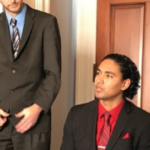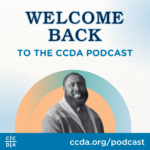By Rev. Dr. Lori E. Banfield
34 “Then the King will say to those on his right, ‘Come, you who are blessed by my Father, inherit the Kingdom prepared for you from the creation of the world. 35 For I was hungry, and you fed me. I was thirsty, and you gave me a drink. I was a stranger, and you invited me into your home. 36 I was naked, and you gave me clothing. I was sick, and you cared for me. I was in prison, and you visited me.’37 “Then these righteous ones will reply, ‘Lord, when did we ever see you hungry and feed you? Or thirsty and give you something to drink? 38 Or a stranger and show you hospitality? Or naked and give you clothing? 39 When did we ever see you sick or in prison and visit you?’ 40 “And the King will say, ‘I tell you the truth, when you did it to one of the least of these my brothers and sisters, you were doing it to me!’
Matthew 25: 34-40 NLT
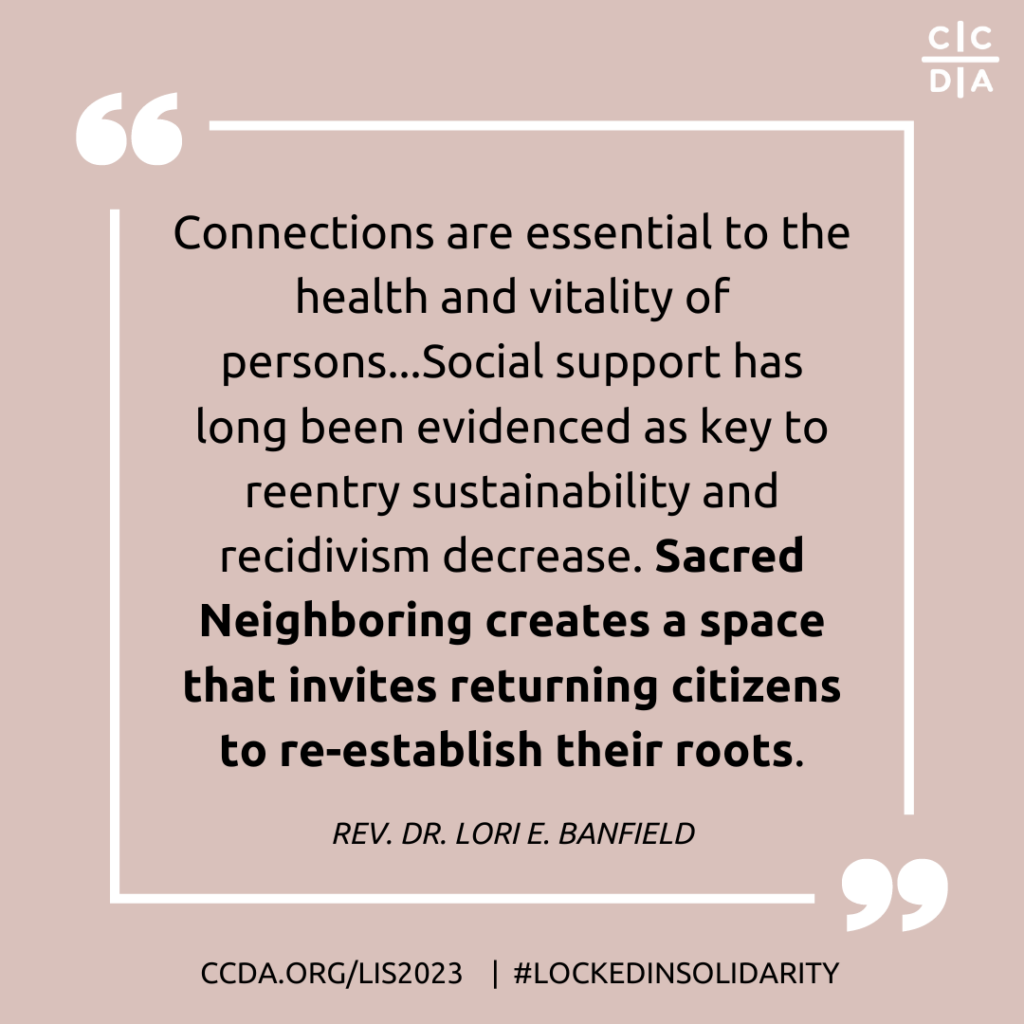
As an attachment-narrative therapist and clergyperson, I have a heightened awareness of the integral, rippling impact our sense of belonging to both people and place has upon our stories. The system of incarceration, inclusive of the process of reentry, has deep responsibility for a multiplicity of strained and ruptured relationships between incarcerated persons and their loved ones. To be clear, it is a normal experience of all people in relationships to feel strains and even ruptures at times, however when one is not given the affirmed space to grieve – emotionally respond to a perceived or felt loss – or reconcile such an experience can become harmful to the process of adjustment and future planning. When a person’s emotional response to a loss is unwelcome, unacknowledged, and even shamed, this is identified as an experience of disenfranchised grief. I have seen incarceration affect the people we work alongside within that very reality of disenfranchised grief as they struggle to make sense of where they stand with the people and the places they once knew. Navigating reconciliation and the shift to a digitally-consumed Western world along with a heavily gentrified landscape has proven quite intimidating and overwhelming for our brothers and sisters returning home.
So how do we, as persons in place, anointed with awareness of these matters, resurrect a modern experience of Jubilee that would support this reconciliation and reorientation process? I invite you to the practice of sacred neighboring. I define Sacred Neighboring as an art of intentional and radical practice of hospitable presence. It models the incarnational generosity of Christ as expressed in Matthew 25:34-40 and the admonishment of Hebrew 13:1-3 with the aim to foster a restored dignity in the process of civil reintegration through self-efficacy and shepherded agency. The mandate of Sacred Neighboring, the onus of welcome is not in the hands nor hearts of the state but rather is an anointing and spiritual gift of the church. This sort of radical restoration of persons and communities takes an incarnational-embodied, spirited people in place. Sacred neighboring recognizes the ecology of thriving as expressed by the principles of Ujamaa and Ujima. It lends itself to our spiritual resilience as we explore the implication of our sense of geographical belonging. Sustainable growth and substance longevity happen in place – where roots have space and time to be nourished, strengthened, and expand. Healthy roots are connected roots. Connections are essential to the health and vitality of persons; especially in new environments. Social support has long been evidenced as key to reentry sustainability and recidivism decrease. Sacred Neighboring creates a space that invites returning citizens to re-establish their roots.
So I call all my fellow advocates and atmosphere changers within the Christian Community Development Association to more intentional sacred neighboring with persons experiencing the journey of reintegration. May we not be weary in our well-doing but trust our God as Omega to bring our restorative developmental efforts to fruition even if we are not present to see it – the roots will remain, and His Kingdom (of Jubilee) shall come.
Featured Resource
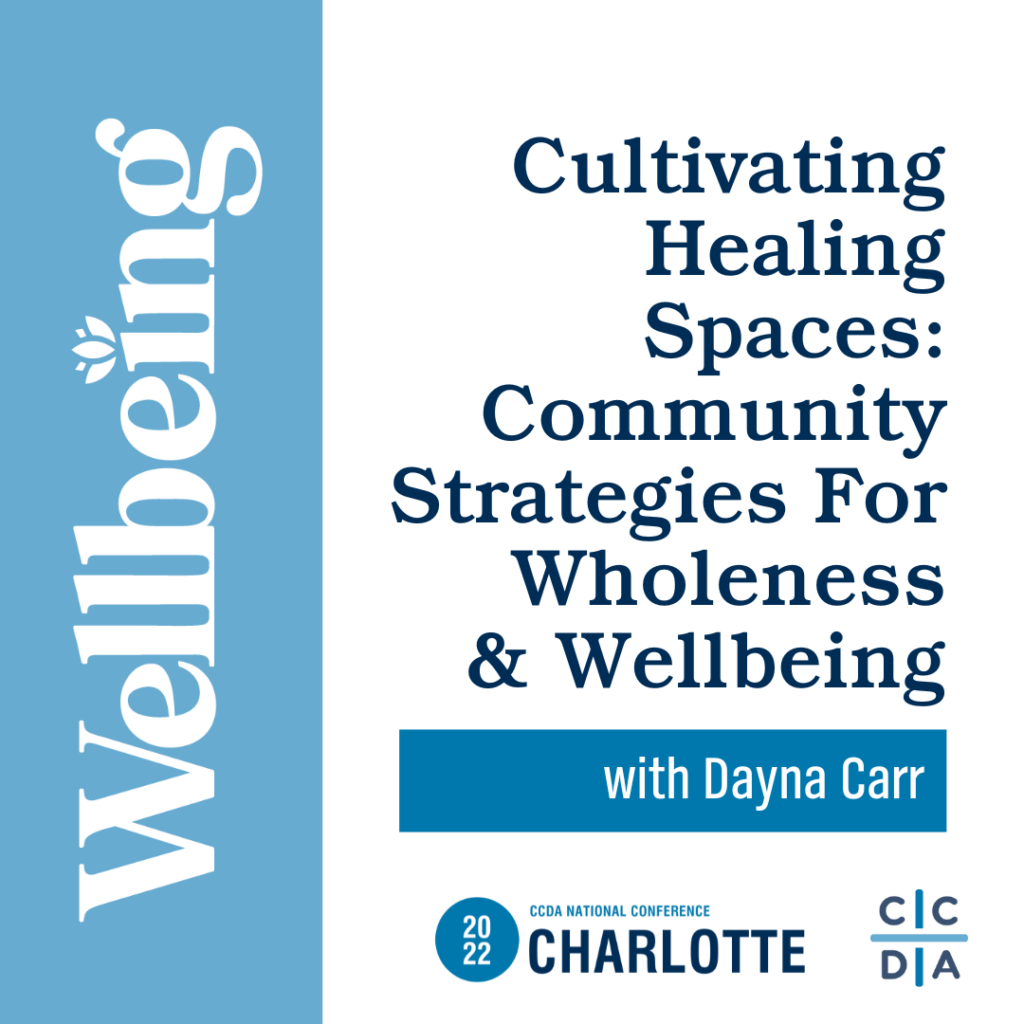
Cultivating Healing Spaces: Community Strategies for Wholeness and Wellbeing
About Rev. Dr. Lori E. Banfield (Dr. Lo)
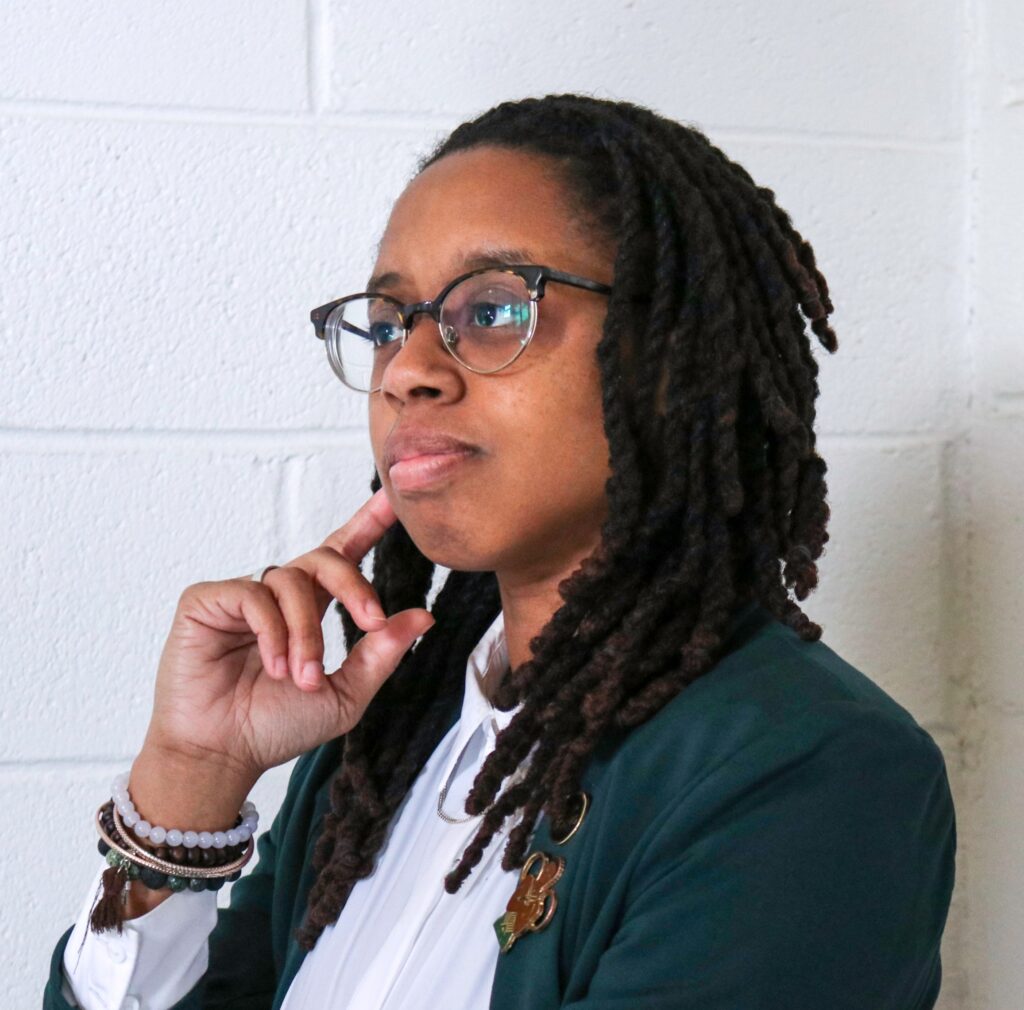
Rev. Dr. Lori E. Banfield (Dr. Lo) is a native and resident of Philadelphia, PA, and serves as Executive Director of Redemption Housing. An Affiliate Professor of Psychology at Eastern University with interdisciplinary expertise in biblical studies and practical theology she has authored multiple publications across disciplines including her own book, Walking Worthy of My Calling. Dr. Lo is a wife and mother of two and serves as an Associate Elder at Word Formed Church.


